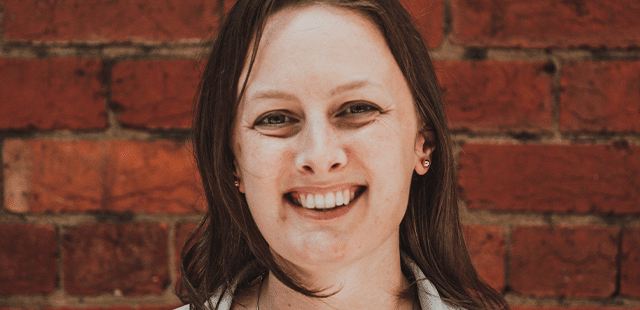
Photo: Supplied
By Stephen Cauchi
18 October 2021
Cases of Delta COVID may be surging close to 2000 a day in Victoria, but hospital staff are prepared and ready, said Royal Melbourne Hospital nurse Alice Arnott.
Ms Arnott, also an executive assistant to City on a Hill lead pastor Guy Mason, said that the last 18 months had been preparation for what hospital staff were experiencing at the moment.
It was mostly unvaccinated people who were ending up in hospital, which meant a lot of young people in the COVID wards, she said.
“Patients are young and now most people in hospital are completely unvaccinated,” she said. “In some cases they’ve had one vaccination.
“But really no-one is going to hospital who’s had both vaccinations.”
Ms Arnott said it was very hard for nursing staff to see young people sick with COVID. Often, entire families were hospitalised because of the contagious spread of the disease.
“A lot of the time it’s not just one person in the family, it’s multiple people in the family who are getting hospitalised – Mum, Dad, grandpa, grandma. That’s tough to see,” she said.
Ms Arnott said that a common fear among COVID patients was the fear of isolation.
“The fear that they felt was what people would think of them, that they’d be almost treated a bit like a leper. They felt fearful they’d be locked in a room and no-one would want to come near them,” she said.
But one patient said his fears had proved unfounded.
“He said to me, ‘I have felt so cared for by the doctors and nurses and you guys are like my family now.’ I was almost brought to tears by that,” Ms Arnott said.
Ms Arnott said that while some patients have had to deal with the aftermath of long-COVID symptoms, patients were generally getting better and getting back on their feet.
Royal Melbourne Hospital has effectively been divided into three, she said. Two or three wards, known as hot zones, are for COVID-only patients, two wards are for suspected COVID patients, and then there’s the rest.
Ms Arnott said work was still “hard” and “very intense”, the combination of double-vaccination, personal protective equipment, and good policies and procedures had made a “huge difference”.
“We’re really not at risk and that has changed things hugely for people, psychologically for people,” she said.
However, the possibility of breakthrough infections still existed.
“You still have worries, you still think what if I caught it,” Ms Arnott said.
Ms Arnott said that despite being double-vaccinated, she was “hyper-aware” of her status as a nurse working in a COVID ward.
“Just walking past strangers on my daily walk, and even having a mask on, I felt myself holding my breath. It’s a unique experience and quite confronting,” she said.
Unfortunately, despite being double-vaccinated Ms Arnott still needed to wear personal protective equipment.
This included a hairnet, booties over her shoes, a gown, an N95 mask, and a faceshield.
Ms Arnott said the N95 mask was particularly uncomfortable, as the strap and position on the nose often inflicted a tension headache.
“One of the nurses said to me it’s kind of like being in a sauna with PPE but you can’t sit still,” she said.
“You’re so hot and you’re being asked to keep going.
“Then you have to put an apron on every time you go into a different patient’s room.”
But while PPE was uncomfortable, it was worth it, Ms Arnott said.
“It’s not just a token thing, it really does work, it’s a huge barrier.”
Doctors and nurses at hospitals were still finding the work tough, but there was also a “sense of calm”.
“We’re prepared. We know a lot more now than we did at the start of the pandemic,” Ms Arnott said.
“Morale is great. People are really looking out for each other.”
Media coverage had been sympathetic to hospital staff and the difficulty of their work. Furthermore, Ms Arnott sensed that the community were very thankful for the work of doctors and nurses.
Ms Arnott said that nurses were being tested for COVID-19 every single time they did a shift at the hospital. She said very few staff members, especially since vaccination, had got COVID.
Ms Arnott said she lived by herself and has not had to worry about infecting a family. Nurses with family have not been so fortunate, she said.
“They said to begin with it was very hard. When they were more at risk of contracting COVID there were nurses who were having to go to a hotel if they had family, just so they could be separate.”







